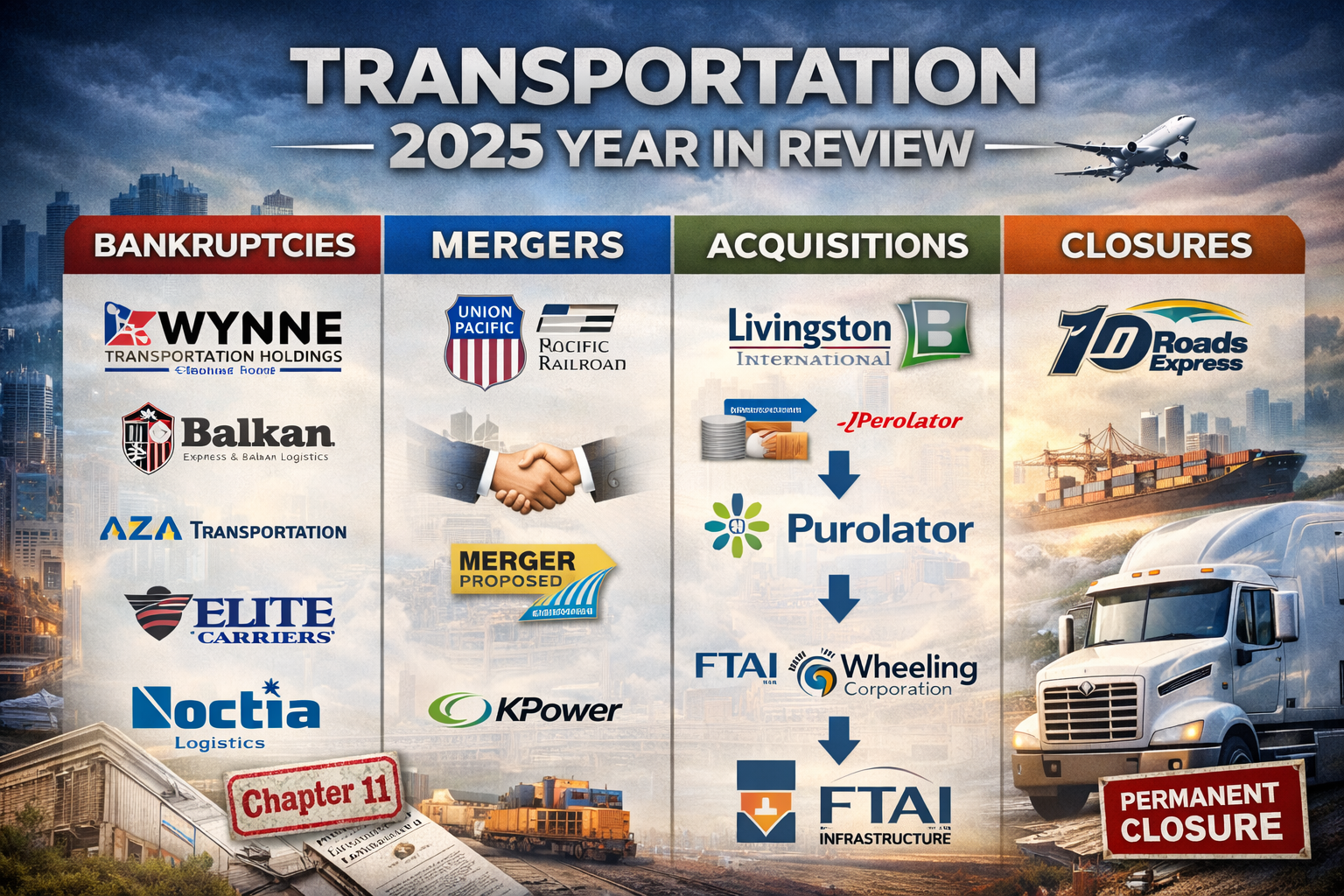Registered Agents & Their Role in Business Compliance
Share this Article:

In the transportation industry, staying compliant with legal requirements is critical to keeping operations running smoothly. For companies operating across multiple states, one essential yet often overlooked requirement is the appointment of a registered agent. This role is not just a formality. It is a legal obligation that helps ensure your company remains in good standing with state authorities.
Whether your business operates in trucking, rail, aviation, or shipping, understanding the role of a registered agent is key to avoiding compliance issues. From handling legal documents to supporting multistate operations, registered agents play a vital part in protecting your business and keeping you informed.
What is a Registered Agent?
A registered agent is a person or professional service appointed to receive official and legal correspondence on behalf of a business. This includes service of process, government notices, compliance documents, and state filings. Every state requires companies to maintain a registered agent with a physical street address in that state so the business can be reliably contacted by regulatory agencies and legal entities.
The registered agent acts as the official point of contact between the business and the state. For transportation companies that operate in multiple jurisdictions, having a reliable registered agent in each state is essential. This helps make sure that time-sensitive documents are received and routed appropriately, reducing the risk of missed deadlines, penalties, or administrative actions.
Legal Obligations of a Registered Agent
A registered agent plays a critical role in a company’s legal structure by serving as the official recipient of state and legal documents. Beyond simply receiving mail, the agent is legally obligated to be consistently available during standard business hours and must promptly handle sensitive documents such as lawsuits, regulatory notices, and tax-related communications.
This position also requires the agent to maintain a physical address in the state where the company is registered to do business. Failure to meet these obligations can lead to serious consequences, including fines, administrative penalties, or loss of the company’s authority to operate within the state.
For transportation companies, these responsibilities carry greater weight due to the complex nature of multistate operations. Having a dependable agent helps reduce exposure to legal and regulatory setbacks that could otherwise disrupt operations.
Importance for Transportation Companies
Transportation businesses face distinct compliance challenges due to their presence in multiple states. From moving freight across regions to managing assets in different jurisdictions, each state brings its own set of regulatory requirements. A registered agent helps support these obligations by serving as a consistent point of contact for legal and state communications.
With registrations spanning several states, transportation companies rely on registered agents to help avoid communication gaps that could delay filings or cause compliance issues. Without this role, time-sensitive documents may not reach the right people quickly enough, which can lead to penalties or operational disruptions.
Ensuring Compliance Across State Lines
Transportation companies often register in multiple states to support routes, facilities, or equipment operations. Each state sets its own regulatory standards, deadlines, and filing procedures, which can quickly become difficult to manage without structured support.
To stay compliant, companies need a dependable system for receiving and organizing state-specific requirements. This includes annual report filings, licensing renewals, and legal notifications. Without proper coordination, a missed notice or delayed response can result in fines, suspended authority, or loss of good standing.
Maintaining compliance in every jurisdiction where the company does business helps prevent regulatory setbacks and protects the continuity of operations.
Managing Legal Documents and Service of Process
Timely handling of legal documents is important for any business, especially in the transportation sector, where regulatory demands and response deadlines are common. A registered agent plays a key role in managing the flow of these documents by making sure they are received, recorded, and forwarded to the appropriate contacts without delay.

Service of process, such as legal summons or lawsuits, must be addressed immediately. Failure to act on these documents can result in default judgments or other legal setbacks. A dependable registered agent helps reduce that risk by maintaining a reliable channel for legal communications.
Efficient document management promotes accountability and allows company leadership to respond quickly when legal or compliance matters arise.
Selecting an Appropriate Registered Agent
Choosing the right registered agent is a strategic decision that impacts how well a business responds to legal and regulatory matters. For transportation companies, the ideal agent is one that offers consistency, reliability, and experience across multiple jurisdictions.
Look for providers with a proven track record of working with transportation businesses. They should understand the operational pace of the industry and be equipped to handle high volumes of correspondence without delay or error. Scalability is also important. As your company expands into new states or markets, the agent should be able to support that growth without gaps in service.
In addition, the agent must be organized, responsive, and capable of handling sensitive documents with care and discretion. Technology integrations, centralized access to documents, and strong communication protocols are key features that help streamline internal processes and reduce administrative strain.
Consequences of Non-Compliance
Missing state requirements related to registered agents can create serious issues for transportation companies. If a business cannot be reached due to an inactive or outdated agent, it risks falling out of good standing. This may lead to fines, penalties, or suspension of operating authority.
More significantly, failing to respond to legal notices can result in default judgments and costly legal consequences. For companies operating in multiple states, these risks multiply. A lapse in one jurisdiction can delay licensing, affect contracts, or lead to additional regulatory pressure.
Staying on top of these obligations helps protect your company’s legal status and supports uninterrupted operations.
Stay Compliant with Transportation Tax Consulting!
Compliance starts with the right support. Transportation Tax Consulting helps companies in trucking, aviation, rail, and shipping reduce risk and stay organized by connecting them with reliable registered agent solutions as part of a broader compliance strategy.
Our team understands the demands of multistate operations and offers practical guidance tailored to the transportation industry. Whether you’re entering new markets or strengthening your compliance process, we’re here to help.
Schedule a consultation today to keep your business compliant, protected, and focused on growth.
Share with Us:




